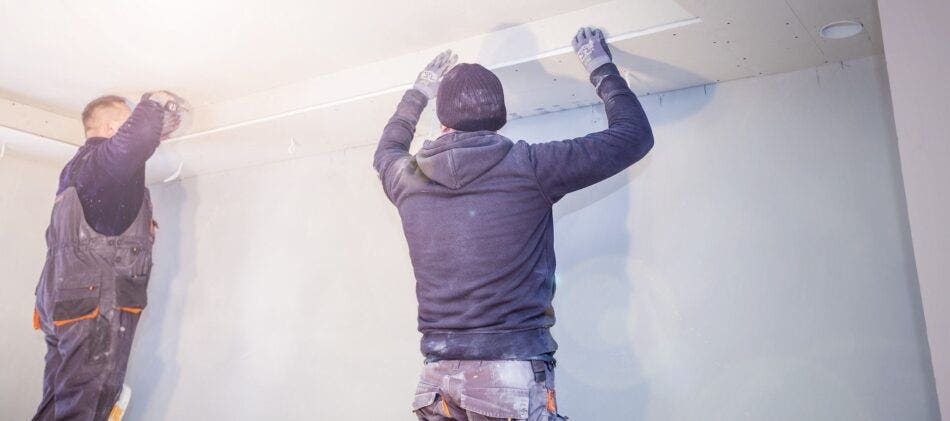On Sept. 6, 2016, the Canadian Border Services Agency (CBSA) imposed gypsum board (drywall) tariffs after complaints that U.S. producers were dumping product into the Canadian market. The initial complaint claimed that U.S. prices were so low that they were pricing Canadian manufacturers out of the competition and harming the industry as a whole.
The tariffs, which impact drywall being brought into Canada from the United States, range from 105 to 276 per cent, depending on the product type and manufacturer. These tariffs have significantly increased the price of drywall across British Columbia, Alberta, Saskatchewan, Manitoba, and the Yukon and Northwest Territories.
In fact, many fear that the gouging is so severe that contractors may have to pull out of jobs and small firms could go bankrupt altogether. This is particularly alarming for builders and developers already struggling in Alberta – a province that has seen investments in residential construction fall 17 per cent in the second quarter of 2016.
What’s more, the effect of these drywall tariffs extends beyond construction companies and workers, increasing the cost for Canadians looking to build homes as well. Some sources suggest that the cost of building a 3,800 square-foot custom home in British Columbia alone could go up an extra $9,000. This is likely because an estimated 40 to 60 per cent of the drywall used in residential projects is often imported directly from the United States.
And, while most would expect the issue to be rectified simply by pivoting exclusively to Canadian drywall, this raises other concerns, particularly in terms of supply. Currently, there are only three drywall manufacturers in Canada, which are located in Vancouver, Calgary and the Prairies. It is likely that these companies will not be able to meet the new increasing demand, resulting in shortages across the country.
However, trade and general contractors may be able to justify the increased cost of materials to their clients if they are locked into a contract under the Canadian Construction Documents Committee (CCDC). Specifically, CCDC2 contracts (2008 Stipulated Price Contracts) may contain a clause recognizing that duties imposed after a bid can increase the contract price accordingly.
However, not all contracts contain that language, nor are inflationary increases in materials prices generally subject to the same CCDC treatment as tariffs.
While an appeal on the tariffs has already been made, no action will be taken until December. To read the official statement from the CBSA, click here.
For more information and resources on issues affecting the construction industry, please contact an Acera Insurance advisor.

